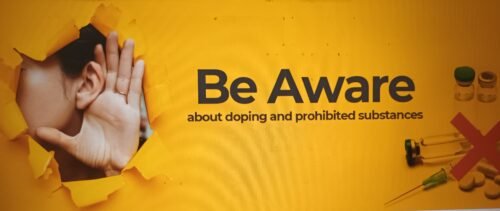Paris Olympian tested positive for synthetic anabolic steroids. Faces a four-year ban, and risks losing her Asian Championships silver medal

Navneet Singh
India’s rising wrestling star Reetika Hooda tested positive for synthetic anabolic steroids in tests conducted at World-Anti Doping Agency laboratory in Rome. The 22-year-old wrestler from Haryana was provisionally suspended by the National Anti-Doping Agency (NADA) on July 1. Her samples were collected by NADA during the Asian Championships selection trials on March 15. Sportsbackstory.com has reliably learnt that her samples were sent for advanced testing to another WADA-accredited lab in Rome, which confirmed the presence of testosterone and its metabolites, including androsterone and etiocholanolone, according to a report from the Rome laboratory. The findings were further verified by another lab in Cologne, Germany, sources said.
If found guilty, Reetika, who represented the country at the 2024 Paris Olympics, could face a ban of up to four years and be stripped of her Asian Championships silver medal.
Her urine sample was initially tested at the National Dope Testing Laboratory (NDTL) in New Delhi, before being forwarded to the Rome lab for further testing.
“Reetika’s urine sample, collected by NADA on March 15, was re-tested in Rome due to traces of a rare compound,” a source familiar with the matter told Sportsbackstory.com.
The sample was collected during the selection trials for the Asian Championships on March 15 (in-competition test). Reetika went on to win a silver medal at the Asian meet in April.
The 76kg wrestler, who reached the quarterfinals at the 2024 Paris Olympic Games, now faces a potential four-year ban for a first-time steroid offense. She may also be disqualified from the Asian Championships and required to return her medal.
Her B sample, if requested, will also be tested in Rome. The case will then proceed to a hearing before NADA’s Anti-Doping Disciplinary Panel.
According to anti-doping rules, if the B sample confirms the presence of the banned substance or if the athlete chooses to not go for a B sample test, an Anti-Doping Rule Violation (ADRV) will be formally established.
Under Article 10.2 of NADA’s code, the standard sanction for a non-specified substance like synthetic testosterone is a four-year ban, unless the athlete can prove the violation was not intentional.
The Rome lab confirmed that Reetika’s sample contained multiple metabolites of synthetic anabolic steroids.
“Synthetic testosterone is exogenous. It comes from outside the body,” said Ashok Ahuja, former head of the SAI Sports Medicine Centre in Patiala. “It will be extremely challenging for the athlete to prove her innocence in such a case.”
Reetika, a U23 World Champion from Rohtak, has won multiple medals at international events sanctioned by United World Wrestling (UWW). She was considered a strong contender for a medal at the upcoming World Championships in September.
While testosterone is a naturally occurring hormone, it is classified as a prohibited substance when used exogenously to enhance performance. Its primary role includes the development of muscle mass and strength.
Reetika’s sample had some rare compound, therefore the sample was sent to a lab in Rome, says a source.“There are only a few labs across the world, including Rome and Cologne, that have facilities to test rare compounds,” the source added. “Some cases like this are rare and many WADA accredited labs don’t have advanced facilities to reach a conclusion.” “Only a handful of labs worldwide, such as those in Rome and Cologne, have the capability to detect rare compounds through advanced testing mechanisms,” the official explained.
If Reetika admits to the violation, she may be eligible for a reduced ban of three years under Article 10.8.1 of the NADA code. Alternatively, she may pursue a case resolution agreement under Article 10.8.2, depending on the specifics of her case.


